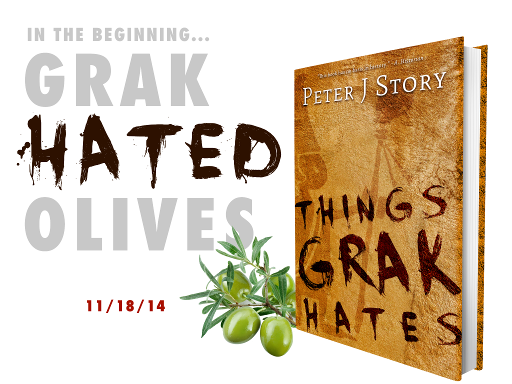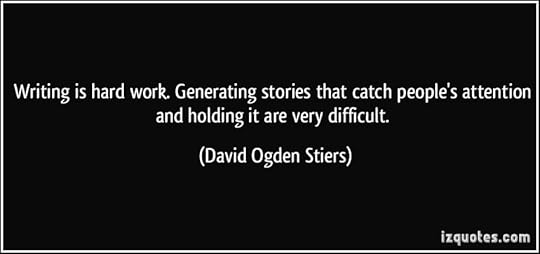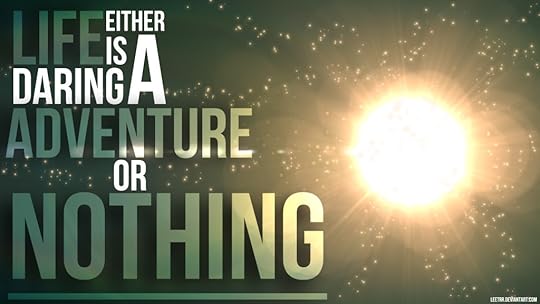Andy Peloquin's Blog, page 55
November 21, 2014
A Week of Things Grak Hates and I’m Still Lovin’ It!
I’ve had a few days to read the recently released “Things Grak Hates” by Peter J. Story, and boy has it been a long week! I’ve found it all but impossible to work, as my nose has been buried in the pages of an excellent book.
For those who missed my Tuesday post, here’s what this book is all about:
Grak hates things. Lots of things. And with a peculiar intensity too.
Grak’s contempt is so strong, in fact, that it often leaves his fellow tribesmen bewildered. And when attempting to describe his personality, they find themselves in need of words with greater nuance. “Neurotic” is typically used. “Sociopath” and “narcissist” are also common terms. The most popular descriptor, however, is “pathological.”
Grak, on the other hand, sees his situation in a rather different light. He finds his behavior “necessary” and “selfless,” or even “benevolent” when his mood is just so. Most often, though, he simply attributes his nature to “being human.”
But of all the things Grak despises, his antipathy for olives takes precedence. In his efforts to be rid of this nuisance, he gets his first taste of power and ignites a series of events with troubling consequences. Unwilling to give up his newfound influence, he sets about honing his only true talent: manipulation. But as his grip tightens, Grak’s naively selfish exterior crumbles to reveal a dark and malicious evil …
This is more than just a dark comedy, but it’s a pretty awesome satire that mixes power, religion, politics, and human nature into one dry, humorous story. Definitely worth the read!
You can find out more about it at Peter’s website: http://peterjstory.com/things-grak-hates-launches-today/
Or just go straight to Amazon and get it for yourself: http://www.amazon.com/Things-Grak-Hates-Peter-Story-ebook/dp/B00N5HSAUM/
November 18, 2014
Things Grak Hates Launches Today
Today is very possibly one of the best days of the month. Sure, it’s not my birthday (that’s next week for all you who don’t know) or Thanksgiving, but it’s the day that one of my most anticipated books of the year is launched.
It’s “Things Grak Hates” Day!
This is a book I have been looking forward to for a long time. It is written by a man who I respect enormously–Mr. Peter J. Story. In fact, his efforts to write this book are what inspired me to pick up my own fiction-writing pen once more!
I was hooked by the opening line:
“Grak hates olives.”
I happen to hate olives, so immediately I wanted to know what made this person hate olives as much as I did. From there, I was dragged into a book that just got better and better as the story got worse and worse.
Here’s what it’s all about:
Grak hates things. Lots of things. And with a peculiar intensity too.
Grak’s contempt is so strong, in fact, that it often leaves his fellow tribesmen bewildered. And when attempting to describe his personality, they find themselves in need of words with greater nuance. “Neurotic” is typically used. “Sociopath” and “narcissist” are also common terms. The most popular descriptor, however, is “pathological.”
Grak, on the other hand, sees his situation in a rather different light. He finds his behavior “necessary” and “selfless,” or even “benevolent” when his mood is just so. Most often, though, he simply attributes his nature to “being human.”
But of all the things Grak despises, his antipathy for olives takes precedence. In his efforts to be rid of this nuisance, he gets his first taste of power and ignites a series of events with troubling consequences. Unwilling to give up his newfound influence, he sets about honing his only true talent: manipulation. But as his grip tightens, Grak’s naively selfish exterior crumbles to reveal a dark and malicious evil …
In his debut work, author Peter J Story brews a robust psychological satire infused with dry humor and a pinch of emotion. Set just prior to recorded history, Things Grak Hates chronicles the life of a bizarre nomad and his descent toward evil. Along the way, this unconventional allegory explores a variety of complex issues. Among them: power, politics, religion, redemption, the dissemination of ideas, and human nature itself.
I have been privileged to read an advanced copy of this book, and I loved it! It’s a great read and definitely worth your time.
You can find out more about it at Peter’s website: http://peterjstory.com/things-grak-hates-launches-today/
Or just go straight to Amazon and get it for yourself: http://www.amazon.com/Things-Grak-Hates-Peter-Story-ebook/dp/B00N5HSAUM/
November 17, 2014
Writing Mistakes: Jumping the Gun
I’m getting dangerously close to completing the manuscript of The Last Bucelarii (Book 1): Blade of the Destroyer. It’s in the hands of the editor at the moment, meaning I have just a week or so until I begin work on the final draft. From there, it’s on to formatting and getting it ready for the final step: publishing.
I will ship the manuscript out to a few dozen publishers on the off chance that someone is willing to take a risk on a newbie writer, but I’m also going to prepare for a self-published launch just in case. I’ve been reaching out to friends and compatriots for help, and I’m very excited about the results I’ve gotten! If all goes well, it will be a wonderful, widespread launch come (SPOILER DATE NOT INCLUDED).
Yet someone told me this about my efforts to set up the launch:
“That’s all bullshit, release the book now if it’s ready… send it to all your Friends and fans and ask for reviews.”
This week’s writing mistake isn’t me talking about mistakes, it’s about me asking questions to help avoid a mistake on my part. So here’s the question:
When should I publish, and when should I launch the book?
I’m thinking of publishing the book online a month or two before the actual launch date, that way I can start getting reviews on Amazon, Goodreads, etc. That way, when the launch date actually arrives, there will be enough reviews that people who see it will be enticed to buy.
But is that the right way to go? Should I publish on the same date as the launch? Should I publish earlier and start driving more traffic to the book before the launch date?
Any of you fellow writers out there, PLEASE comment–either here or on Facebook–and give me your advice. How did you do it with your books? What worked best? What would you recommend?
I don’t want to jump the gun on the publishing, but I want to make sure that this one hits big in the only way I know how.
My thanks!
November 14, 2014
How Do You Trust That Your Writing is Good Enough?
This question is aimed at all of my fellow writer friends out there…
I’ve been working on the second draft of my new book–The Last Bucelarii (Book 1): Blade of the Destroyer–preparing it to send off to the editor. I’m at the stage where I’m reading over it myself, trying to find the sentences that sound odd, overly wordy, or poorly constructed.
As I’m reading over it, I find myself being super critical of the writing. I see mistakes EVERYWHERE, but when I read other books, I find that many authors use what I consider to be mistakes.
I’m currently reading through three books right now:
Star Wars books by Timothy Zahn
The Last Stormlord series by Glenda Larke
Riyria by Michael Sullivan
All of these books have the same things that I’ve been told are mistakes, such as adverbs (-ly words), passive tenses (“was”), and so on. Their sentence structure is sometimes odd, with phrasing that I would ruthlessly eliminate from my own work.
So is mine as good as theirs? Am I being too hypercritical of my own work?
I think that this is something that most authors face: reading their own work, comparing it to other authors, and feeling like theirs isn’t good enough. I think it’s inherent human nature to find flaws in what we excel at, but how do we reconcile ourselves with never being perfect or writing perfectly?
Should I be content just to publish the work knowing that the story itself is good, even if the writing isn’t perfect in every way?
Here’s another thought: are all of those “flaws” in my writing really flaws, or are they just my picky nature showing through?
Like I said, the books I listed above use many of the things that I’ve been told are “mistakes”, and they are best-selling or award-winning books. Am I being too critical of my own work? Will readers actually go through my book and say, “Oh, writing mistake right there!” or will they just read it and enjoy it? When do we cross the line from editing into being too darn picky?
Any advice or feedback you have on this one, PLEASE comment? Any published authors out there, I’d love to hear what you have to say about how you can feel your work is good enough. Thanks!
November 12, 2014
Why So Many People Just Can’t Write
I’ve never really had to figure out how to write–it’s always just sort of been something I could do. Perhaps I didn’t always do it well (I may not write well even now), but the ability to write always came pretty naturally. I could sit down and create, and the words would just flow.
I think I take the skill of writing for granted, as so many other writers undoubtedly do as well. It’s such a normal thing for us to write in our journal, our latest novel, our blog, or even an email. Words and ideas just flow from our brains, often without effort in many cases. We come up with crazy stories and plot twists that most people would never think of. While we’re creating, others are struggling to come up with a single paragraph for a love letter or a short story.
This isn’t a boastful “I’m so awesome” post, but it’s a look at why some people write and other just can’t (or feel they can’t). Here are a few reasons:
Lack of practice. Writers are people who spend time every day or every week writing, and they slowly get accustomed to the habit. People who feel they can’t write are either very out of practice writing (they did plenty in school, but haven’t in years), or just don’t see how anyone can sit at a desk and write for hours on end.
Lack of reading. Being a good writer requires investing time into reading, and not everyone likes to read. People who don’t read often have no desire to write either.
Writing is viewed as a punishment. Did your parents or teacher make you write as a punishment? Mine did, but thankfully I no longer think of it that way. For many people, writing is still something they see as a form of torture.
A belief that writing is easy. As with most forms of art, many non-writers believe that writing should be easy. When they discover that it is challenging, they often give up. Writing comes easy for some, but great writing is just plain old-fashioned hard work.
These are just my opinions, but I stand by them. What do YOU think stops people from writing?
November 10, 2014
Writing Mistakes: Overdoing on Symbolism and Themes
The other day I was browsing through one of the many Facebook groups I have joined, and I stumbled upon some author talking about how he or she managed to include symbolism in their stories. They found the common theme by the end of their first or second book, and they worked it into the entire story. Unfortunately, that could actually be a mistake!
Symbolism and themes definitely deserve a place in novels and fiction, but that place is somewhere in the background. If the theme is an overarching one that is the focus of the book, it can actually make your story a bit predictable.
One author talked about how he picked up a book series where the theme was cleansing, using water as the image. By the time he finished reading the first book, his mind was so absorbed with trying to predict how the series would use water again that he failed to enjoy the story.
How is this bad? Well, considering that a large percentage of your readers will be fellow authors, what you’re doing is taking them out of the position of reader and transforming them into an observer–or, even worse, a critic.
If you follow a predictable pattern of imagery, themes, and symbolism, your readers will start looking for ways that you will include it into your work. They’ll start critiquing the concept of your story, rather than enjoying the story itself. When that happens, you’ve nearly lost your reader, and it’s very hard to get them back!
Themes, images, and symbolism definitely have a place in your book, but it shouldn’t be at the forefront of your reader’s minds. The symbolism should be subtle, hinted at instead of thrown in people’s faces. If your story revolves entirely around symbolism, it will be almost too obvious. You want it to be in the background of their mind. You want them to say, “Hang on! That book/series was all about (X concept)”, but you want them to say it AFTER they’ve finished reading the book.
Don’t shove your imagery or symbolism down your readers’ throats or make it too “in your face”. Instead, assume that they’re smart readers who will be able to winkle out the theme for themselves, and they’ll appreciate the fact that you left it subtly in the background!
November 7, 2014
The Most Terrifying Thing of All….
The missus and I were lying in bed the other day, watching the latest episode of The Walking Dead–the one featuring Beth in the hospital. (To any of you who have not yet seen the episode, my apologies for the SPOILERS below…)
Through the episode, you discover that the people living in this hospital were basically subjugated to the rule of the people protecting them–the police officers. One of the officers tried to have his way with Beth, and when she confronted the leader of the police, the woman (yes, it’s a woman) basically shrugs and says, “The system works. You keep the officers happy, and they protect us.”
That, to me, was far more chilling and terrifying than anything the walkers had ever done. Throughout the seasons of The Walking Dead, the worst things have NOT been done by the walkers, but by the humans that the characters encountered.
Human nature is by far the most terrifying thing of all!
The Walking Dead isn’t so much a zombie show as much as a show that illustrates the depravities of human nature. The Governor killing indiscriminately. The people at Terminus eating other humans. And now the officers at the hospital having their way with people just because they have the power to do so.
Someone once said, “There is no evil; there is only desire and what we would do to achieve it.” I completely believe that human nature is the thing that is closest to evil, and it’s only because we make it a point to fight that inner evil that society exists today.
What is more terrifying: a werewolf that kills a child because it is hungry, or a person who feeds a child to a werewolf in order to convince someone to do what he wants them to? In my opinion, the latter is the far more terrifying creature, and yet he is a human. The monster only does what nature compels it to do, but the human has the choice–and it chooses to do the depraved and the horrifying.
We all have our own fragment of darkness within us, that monster that howls in the night. We all try to keep it down, but there are times when it comes out–when we’re angry, sad, or hurt. The people we see as “villains” are those who simply allow that dark side of human nature to come out in greater measure than society deems acceptable.
Mankind truly is the greatest monster!
November 5, 2014
Writing is Freaking Hard Work!
Let me make this clear: this is not a post of me complaining. It’s just something I’ve realized in the last few months…
Dorothy Parker said something wise about writing:
“If you have any young friends who aspire to become writers, the second greatest favor you can do them is to present them with copies of The Elements of Style.”
Very wise words. I’ve read the book by E.B. Strunk, and it’s genius in its simplicity.
However, she doesn’t stop there:
“The first greatest, of course, is to shoot them now, while they’re happy.”
And I’d have to say I agree with her on that note!
When you start out as a writer, you have high-faluting notions of writing the next great masterpiece–or at least something people will want to read. You put the story down on paper or a Word document, and you pat yourself on the back because it’s AMAZING. Or so you tell yourself.
Send it off to the editor, get to work on your next project, and wait for it to come back. When the manuscript is finally returned, it’s COVERED in red marks and corrections.
Two weeks later, you’re barely a couple of chapters into the editing, and you’re groaning, saying, “Why, oh God, did I ever become a writer?”
Writing starts off as a lot of fun, as a way to share your inner self and tell that story that’s bursting out of you. After a while, you realize that this notion of “fun” is something only newbies have. All good writers come to realize that writing is lot of freaking hard work!
There’s the rough draft, which means putting the story down on paper. Then there’s the first draft, which is polished and made readable so you can send it off to beta-readers. Then you get those notes back, and you may have to overhaul entire portions of the story (I had to basically redo the last half of my latest book) thanks to the notes from your beta readers. Then you go over it and do a second draft, all so that you can send it off to the editor–who will return it to you covered in red marks and force you to edit it to make it ready for (hopefully) the final draft. Of course, if you submit it to a publisher, chances are their editor will slice and dice it as well.
As you can see, writing is a lot of work! The difference between most of the writers who publish garbage and the ones who actually put out good stuff is the work involved. The great writers are the ones who power through even when that “fun” becomes “work”–the boring, dull kind of re-reading a manuscript for the third or fourth time.
Seeing as I want to be a good writer, I’m going back in to do another edit!
November 3, 2014
Writing Mistakes: Writing a Weak Blurb
You may not realize it, but the book blurb is almost more important than the book itself! Sounds a bit counterintuitive, but the fact is that your book blurb is the only thing that is going to hook people on the contents of your book.
Take your very favorite book of all times–mine’s Lies of Locke Lamora by Scott Lynch–and think about what made you read it. It was often a good review from someone else, but before you picked up the book, you probably read the book blurb.
Let’s take Lies of Locke Lamora and write a crappy blurb for it:
Locke Lamora is a thief in the city of Camorr, together with Jean Tannen and his friends. They pull off capers and heists, but then one day they find themselves in deeper than they expected. Things are about to go badly for this roguish criminal and his pals!
Would you read that book! I certainly wouldn’t!
Now, let’s take a look at what the book blurb actually says:
An orphan’s life is harsh—and often short—in the mysterious island city of Camorr. But young Locke Lamora dodges death and slavery, becoming a thief under the tutelage of a gifted con artist. As leader of the band of light-fingered brothers known as the Gentleman Bastards, Locke is soon infamous, fooling even the underworld’s most feared ruler. But in the shadows lurks someone still more ambitious and deadly. Faced with a bloody coup that threatens to destroy everyone and everything that holds meaning in his mercenary life, Locke vows to beat the enemy at his own brutal game—or die trying.
Much better, right?
Your book blurb MUST be effective, for it’s the only thing that will entice people to buy it. It’s even more important if you self-publish! You’re already at a disadvantage of self-publishing your book, so you need to use those five to ten sentences to really draw people into your story and make them sit up and take notice.
Sad to say, it’s much harder to write a good book blurb than you think! I’m struggling to write a good one for my latest book: The Last Bucelarii (Book 1): Blade of the Destroyer.
Here are some tips I’ve found to help me as I write my blurb:
Try to make your blurb match the great blurbs you’ve read
Focus on your character, and what the “stakes” are for him/her
Tell your reader Who, What, When, Where, Why, and How
Condense the blurb, but make sure there’s enough information to hook the reader
Match the blurb style to the book style
Note: These tips are not my own, but they come from:
http://www.selfpublishingadvice.org/how-to-write-an-effective-blurb-for-a-self-published-book/
I’ll be posting the blurb to my book in the next few weeks, so let’s see if I can take these blurb-writing tips to heart!
October 31, 2014
Thoughts on Life
Life is ten percent what happens to you and ninety percent how you respond to it. –Lou Holtz
Life has taught us that love does not consist of gazing at each other, but in looking together in the same direction. — Antoine de Saint-Exupery
Life is just a mirror, and what you see out there, you must first see inside of you. — Wally ‘Famous’ Amos
Life is a zoo in a jungle. — Peter De Vries
There are only two ways to live your life, only two ways to be. One is the right way, the other the wrong way. The right is to give, to share, to love. The wrong way is to snatch, to exploit, to accumulate. Love and money are the symbols of these two ways. Money is neurosis, love is ecstasy. Love is the right way and money is the wrong way. — Bhagwan Shree Rajneesh (Osho)
Life is divided into the horrible and the miserable. — Woody Allen
The supreme irony of life is that hardly anyone gets out of it alive. — Robert Heinlein
Everyone is trying to accomplish something big, not realizing that life is made up of little things. — Frank A. Clark
True friendship multiplies the good in life and divides its evils. Strive to have friends, for life without friends is like life on a desert island?.to find one real friend in a lifetime is good fortune; to keep him is a blessing. — Baltasar Gracian
Life doesn’t require that we be the best, only that we try our best. — H. Jackson Brown, Jr.
What matters in life is not what happens to you but what you remember and how you remember it. — Gabriel Garcia Marquez
Life is like an onion: you peel it off one layer at a time, and sometimes you weep. — Carl Sandburg
There is only one way to get ready for immortality, and that is to love this life and live it as bravely and faithfully and cheerfully as we can. — Henry Van Dyke
I have found that if you love life, life will love you back. – Arthur Rubinstein
Life is a tale told by an idiot — full of sound and fury, signifying nothing. — William Shakespeare
Death is more universal than life; everyone dies but not everyone lives. — A. Sachs












